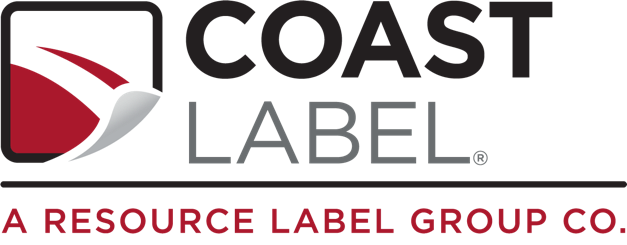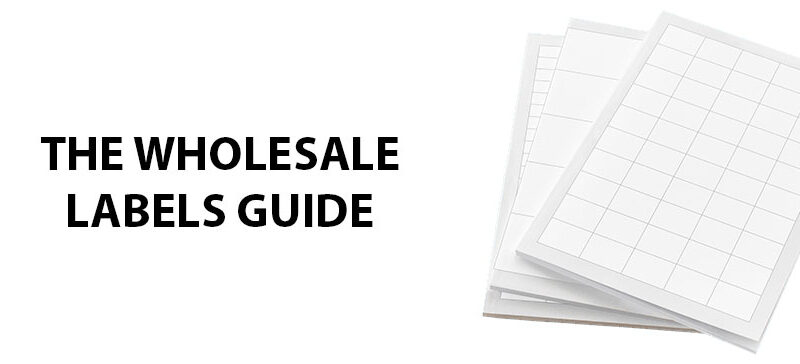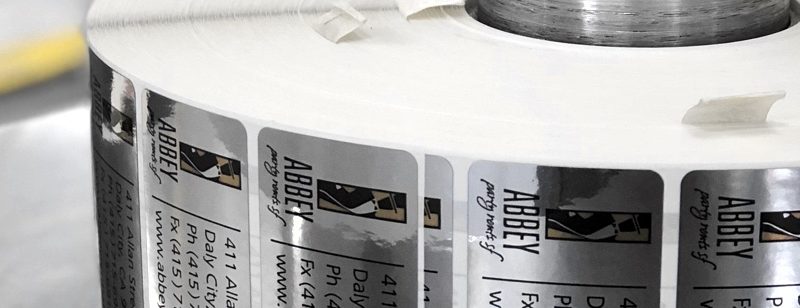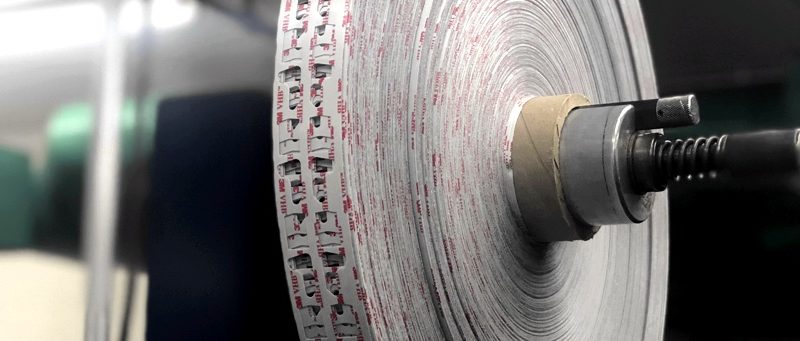In the world of product branding, finding the right label solution is key to standing out. Wholesale labels offer a bulk purchase option for businesses looking for standard yet efficient labeling solutions. Whether you’re in the business of food, makeup, toys, or any other industry, wholesale labels can be a fundamental component of packaging and successful market penetration.
At Coast Label, we provide high-quality wholesale labels that are also cost-effective for your business. But how do wholesale labels differ from private labels? And which one is right for you? Read on to learn everything you need to know about wholesale labels, private labels, and their different uses.
Private Labels vs Wholesale Labels
Both wholesale labels and private labels are effective solutions for marketing and selling products purchased from a manufacturer. The main difference between the two lies in the exclusivity of products being sold. Wholesalers don’t design the products they are selling. Instead, they purchase large amounts of products and sell them to various retailers. Because they buy large quantities at lower unit prices, wholesalers can sell to retailers in bulk for a low price while still making a profit. Additionally, wholesalers offer a wide variety of products, allowing retailers to choose from a range of products by established brands.
Private label sellers, on the other hand, purchase products from a manufacturer and market them under their own brand name. They spend the capital and take the time to develop their brand identity. Selling private label products often yields higher profit margins compared to wholesaling, but it also takes a significant capital expenditure upfront to develop, brand, and market these products.
When it comes to private labels vs wholesale labels, Coast Label does not offer private labels. However, if you’re looking to purchase wholesale labels in bulk, you’ve come to the right place. Using only the best, industrial grade materials, we can quickly manufacture high-quality, wholesale labels to suit your individual needs.
What Are Wholesale Labels?
Wholesale labels are labels produced for selling wholesale products. They are produced in large quantities and often characterized by standardized designs that are quick to manufacture. Because of this, they are a cost-effective solution for businesses looking to package products on a large scale.
Benefits of Wholesale Labels
Wholesale labels offer several benefits for businesses involved in buying and selling goods. Here are some key advantages of wholesaling and wholesale labels:
- Cost efficiency: One of the main benefits of wholesale labels is their cost-effectiveness. Wholesale labels cost less per unit because they’re manufactured in bulk.
- Quick turnaround: Large-scale production of wholesale labels allows for quicker turnaround time to meet the demands of a fast-paced market.
- Volume discounts: By purchasing products in bulk, you typically spend less per unit. Selling at a higher price than you purchased ensures that you make a decent profit.
- Wider market access: Wholesale labels allow products to reach a broader audience through retailers and distributors.
- Risk mitigation: Selling wholesale allows you to diversify your customer base. You aren’t limited to one chain of grocery stores, for example. Relying on multiple retailers or distributors reduces the impact of changes in demand from a single customer.
- Scalability: In general, it’s easy to scale your wholesale operations up to meet growing demand. This means that you can start out small and grow from there as your business is successful.
Negatives of Wholesale Labels
While wholesaling and wholesale labels come with a number of benefits, there are also some drawbacks. Here are some negatives of wholesale labels:
- Limited customization: Mass production comes at the expense of customization.
- Less exclusivity: Wholesale labels are designed for widespread use, which makes it challenging to create an exclusive brand identity compared to private labels.
- Competition: With so many other wholesalers selling the same products, you face a lot of competition in the market.
- Startup costs: Although you don’t have the capital expenditure of development and branding, you may have to purchase large amounts of products just to get started.
What Are Private Labels?
Private labels are exclusive labels created for a specific retailer or business. Private labels are different from brand-name products, however. Typically, a business like a large grocery store chain purchases products straight from a manufacturer and then uses its own private label to market the products. Some well-known examples of private labels include Great Value (Walmart), Kirkland (Costco), and Up&Up (Target). With private labels, you have more control of the branding and unique identity of your products. You take on the risk of developing and marketing your product, but you also reap the rewards of success.
Benefits of Private Labels
When it comes to private labels, the main benefit is exclusivity in branding. Your business can build and reinforce your brand identity, which could lead to higher profit margins and a loyal customer base. Here are some of the benefits of private labels:
- Higher profit margins: If you are successful in creating a product in a niche that isn’t over-saturated, you may see higher profit margins than with wholesaling. Additionally, you save money because you don’t have to pay a middleman, and consumers are often willing to pay more for products with a private label.
- Control: Because you are the owner of the brand, you have control over the product, marketing, and branding. This lets you tailor your marketing and branding efforts to reach different sectors of your target market.
- Brand exclusivity: Private labels offer a sense of exclusivity that lets your business differentiate itself from competitors.
- Customer Loyalty: Private-label brands can help you cultivate a loyal customer base. When customers have a positive opinion of your brand, they are more likely to seek out those products, leading to repeat purchases and a steady stream of revenue. This is difficult to do with wholesale labels.
Negatives of Private Labels
Private labels bring a number of benefits, but there are also some negatives to private labels. Here are some of the drawbacks:
- Higher production costs: Creating unique, customized labels often involves higher production costs per unit.
- Limited distribution: Private labels are exclusive to a particular business, which limits their reach.
- Upfront costs: With private labels, you are creating an entire brand from scratch. This simply costs more money upfront than wholesale labels.
- Risk of unsold inventory: Because private labels are unique to a particular retailer, there’s always a risk of unsold inventory.
Uses of Wholesale Labels
Wholesale labels are used in a wide variety of industries, from food and beverages to cosmetics and electronics. Some of the uses of wholesale labels include:
- Mass production: Wholesale labels are ideal for businesses with high-volume production needs.
- Broad market presence: If your business is aiming for widespread distribution, you might benefit from wholesale labels and their ability to reach a larger audience.
- Faster launch: If you’re looking to quickly launch your business, wholesale labels give you a cost-effective way to get started fast.
Uses of Private Labels
For businesses looking to create a unique brand, private labels are a great option. Here are of the most common uses of private labels:
- Brand exclusivity: If you want a unique brand identity and a more exclusive market presence, private labels are the way to go.
- Specialized markets: If your business caters to niche markets with specific preferences, such as health and wellness, private labels can be a great option.
- Customer retention: For retailers like large grocery store chains, private labels can be used to retain customers by offering high-quality products at a lower price than brand-name products.
Wholesale Labels vs Private Labels Conclusion
Both wholesale labels and private labels are different approaches to marketing and branding products. Private labels are used to develop a sense of brand identity for a group of products sold by a retailer. Customers often expect high quality for a lower price than brand-name products. However, private labels typically cost more because of the time and resources it takes to create customized labels.
On the other hand, wholesale labels are a cost-effective way to label mass-produced products. There is little customization, but these labels are quick to produce so you can launch your business quickly.
The type of label that’s right for you will depend on your business model and goals. At Coast Label, we don’t manufacture private labels. However, if you’re looking for high-quality, wholesale labels, we have you covered. We work with you one-on-one to develop the right label solution for your unique application needs!



